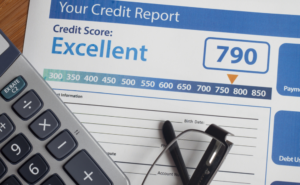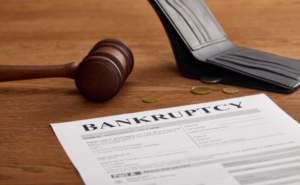How Many Free Credit Reports Are You Legally Entitled To Each Year?
Your credit report is a very significant element of your financial life since it may affect whether or not you can acquire credit, how good or awful the conditions are, and how much it costs to borrow money.
You can acquire these credit reports if you apply for a loan, a mortgage, credit card, automobile insurance, an apartment, or to take other valuable credit decisions that might impact your credit score in the longer run.
If you are looking for a way, here is how to receive a free credit report, why it is a good idea to do so, and how many credit reports you are legally entitled to access over 12 months.
Table of Contents
What Is a Credit Report?
A credit report provides you with an overview of your credit history as an individual. Your credit report contains information about your identity, such as your address and date of birth, as well as information about your credit history, such as how you pay your bills and if you have filed for bankruptcy.
This information is collected and updated by three major credit agencies (Equifax, Experian, and TransUnion). Credit card accounts from most national department stores and banks and loans are included in your file, but not all creditors disclose information to credit bureaus.
Your credit report’s contents might have an impact on your purchasing power. It can also impact your chances to get work, rent or buy a home, and purchasing insurance. Businesses use the information in their credit report to decide whether to lend you money, extend your credit, provide you with insurance, or rent you a home.
Credit reports are used by certain businesses when making employment choices. The quality of your credit history also influences the amount you will have to pay to borrow money.
Why Is It Important For You To Get a Credit
Keeping a check on your credit report would help you dispute any error or mistake as soon as it appears on your credit report. At the very least, do this once a year. Double-check your credit report before applying for credit, a loan, insurance, or a job. If you discover errors in your credit report, contact the credit bureaus and the company that provided you the data to get the errors removed.
One of the errors on your credit report can be identity theft. This means that someone else used your identity and your bank information to make purchases, run charges on your account, use your name to open another account, steal your tax refund, etc. Keeping a check on your credit report would give you an edge, and you can dispute the error straight away with the three major credit bureaus.
How To Get a Free Credit Report?
You need to follow the following steps to get a free copy of your credit report.
- Open AnnualCreditReport.com
- Click on the “Request a free credit report” option.
- Fill out the given application for a free copy of your credit report.
- Choose which credit bureau report you want to access, i.e., Experian, Equifax, or/and TransUnion.
- You’ll be needed to answer some of the verification questions to ensure that you are the right person to access the report.
- After all the above steps, you’ll be able to review your credit report.
All accounts created in your name and actions performed, such as amounts and payment history, are included in your free yearly credit report. It does not, although, contain your credit score. Consider credit card issuers’ alternative services if you want free access to your credit score.
How Many Free Credit Reports Can You Access Each Year?
If you’ve had trouble knowing how many credit reports you can access each year, you might not be the only one. But that’s what we’re here to tell you.
The three major credit bureaus, Experian, Equifax, and TransUnion, allow you free access to your credit report through AnnualCreditReport.com. The number of reports you could access previously was only one. However, this number has been substantially increased to facilitate you even more.
Now, you are legally entitled to three credit reports each year. These credit reports would give you an insight into your credit history, all the accounts you have opened, and other actions are taken. But, it will not tell your credit score.
Equifax CEO Mark W. Begor, Experian CEO Brian Cassin, and TransUnion CEO Chris Cartwright issued a coordinated statement that said;
“We are making credit reports more accessible more often so people can better manage their finances and take necessary steps to protect their credit standing.”
Hence, you are now entitled to three credit reports per year by all the credit bureaus mentioned above.
Details To Look For In Your Credit Report
Once you have your hands on your credit report, there are certain details you might want to analyze to help yourself have a better credit score carefully. When examining your credit report, keep a lookout for frequent credit report inaccuracies and indications of fraud, such as;
- Inaccurate account reportings – means you have a late payment even if you paid on time, or closed accounts are reported as open, etc.
- A new account that you have not opened yourself, but it exists on your report.
- Other errors or inaccuracies in data management, balance, or identity.
If you notice any of these errors on your credit report, it would be wise of you to dispute them straight away with the three major credit bureaus Equifax, Experian, and TransUnion.
All in all, you can get three free copies of your credit report over 12 months. You may order all of your free reports at once or spread them out over the year.
According to some financial consultants, spreading your requests for credit reports across 12 months may be a smart approach to keep an eye on the quality and credibility of the data in your reports.
Since each credit bureau obtains its data from various sources, the information in one credit bureau’s report may not reflect all or even the same information in the other two credit agencies’ reports. Hence, it would benefit you to stagger your credit report access requests over a year to access different reports at different times.






